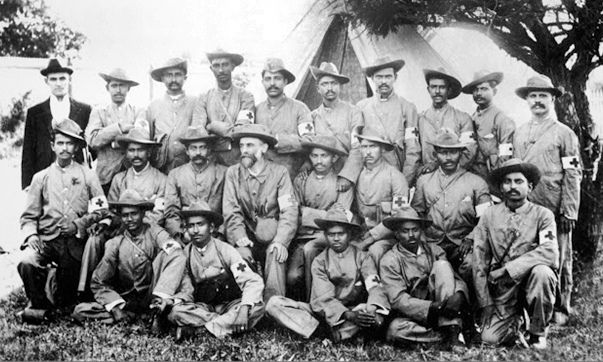What I owe to Mahatma Gandhi
By G. Mohambry Naicker
I was eight years old when Gandhiji left South Africa. I could not
understand then the intricacies of politics or the meaning of the struggle
which for two decades he had to wage against the authorities, but I have a very
distinct recollection of the image that was stamped upon my young mind of the
national hero whose name was a household word among the Indian community. I
faintly realised in those early days the powers of the simple man who was to
achieve in the fullness of time such miracles as even in their heyday warriors
like Napoleon could only dream of. As the years went by I was able to assess
the full power of the weapon of satyagraha which Gandhiji had perfected during
his career as a public man in South Africa. When I reached the age of reason I
began to make a deep study of the writings of Gandhiji, and although I became
an adherent of his great principles, little did I think that it would fall to
my lot to take up the flaming torch he had left behind. I was scarcely prepared
for such a task; I did not feel inclined to be in the forefront of the struggle
that began half a century ago. Yet when the call came, the response in me was
instantaneous. It was the voice of Mahatma Gandhi calling for action. Without
any preparation, without any experience, without the slightest hesitation, I
threw myself into the battle. With faith undiminished in the righteousness of
the cause we had espoused, I became, with thousands of my fellow countrymen a
satyagrahi. I made the vow of reaching the goal that we had in view, no matter
what sacrifice was demanded of us.




